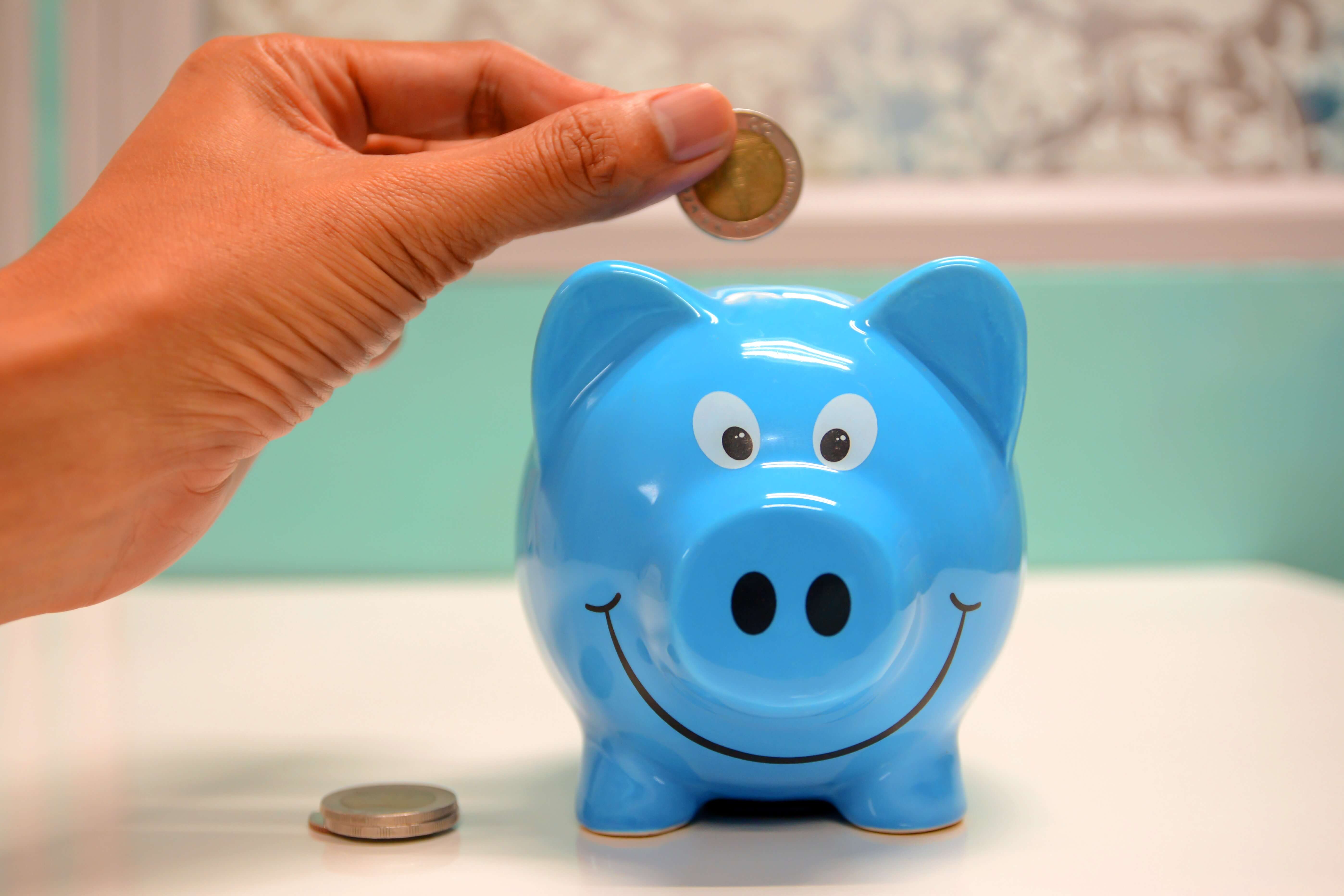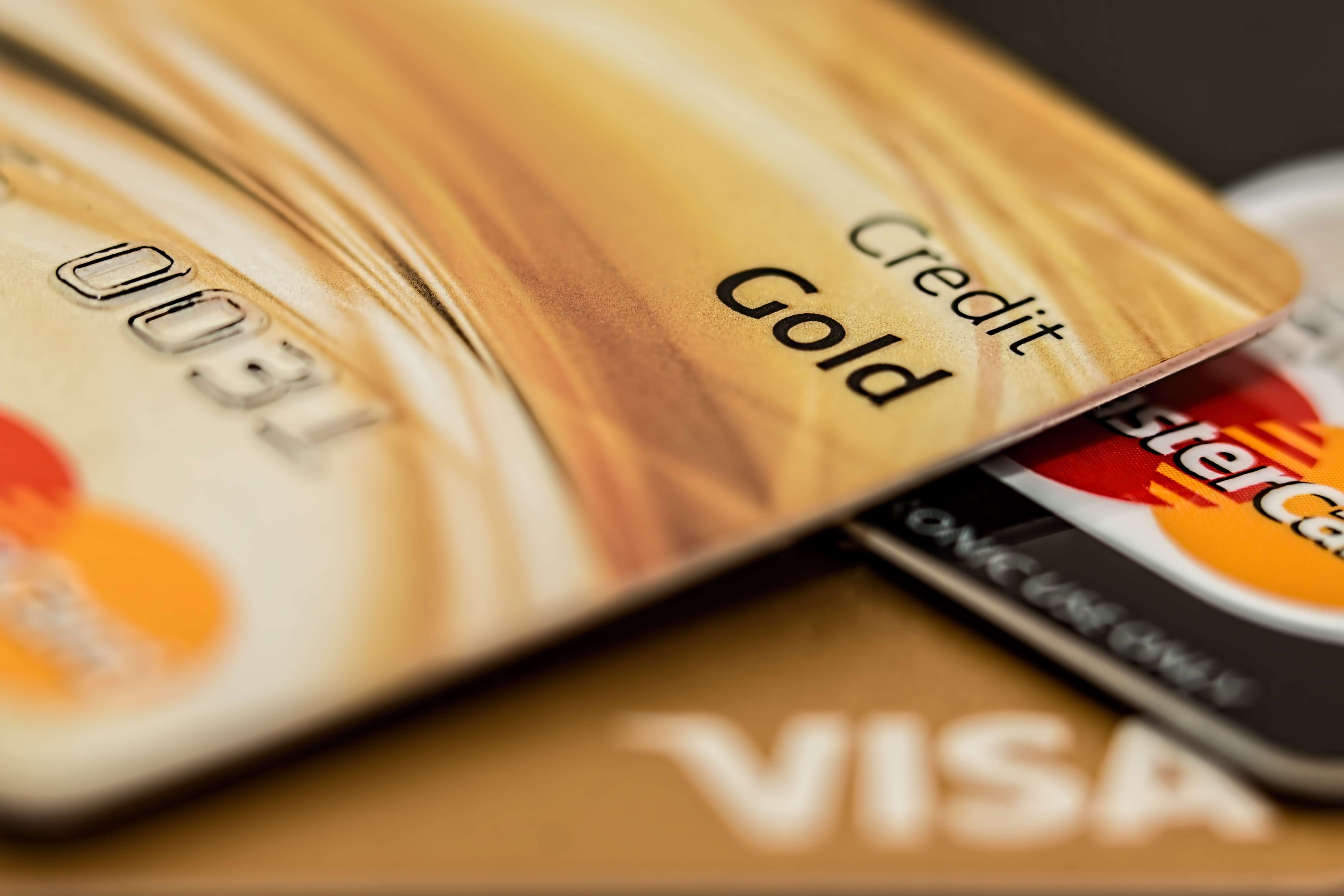CATEGORY - Personal Saving

Financial independence: what it is and how to achieve yours
Have you ever thought about not having to worry about bills or debts anymore? Good financial planning is the first step to making this dream possible.
When you think of financial independence, what scenario comes to your mind: being able to travel whenever and wherever you want? Can you buy whatever you want, just because you feel like it?
At some point, you must have dreamed of achieving financial independence and not worrying about money anymore. But how to get there with low wages, indebtedness, high prices, and so many other issues?
The first step is the financial organization. In the same way that people with a good income cannot achieve financial independence by not planning their finances, those with a lower income can get there by planning their financial life.
In today's article, you will understand a little better what financial independence is and the difference between financial independence and financial freedom. Check out some tips on how to achieve financial independence!
What is financial independence?
Financial independence can mean several things:
-
Have fewer expenses than gains;
-
Have a balanced budget;
-
Having enough reserves and applications to not depend on a job, etc.
Generally, a person can achieve financial independence when he has a good reserve to invest in the right investments. These, in turn, will provide the necessary returns for that person to maintain the lifestyle they would like.
Types of financial independence
Before learning to achieve financial independence, it is important to know that there are four main types. Defining which one you want to conquer will help you design the best strategies. Check what they are:
short term independence
In it, you have money to live without your salary for a certain period, which can be from a few months to a year. To achieve it, it is essential to have an emergency reserve. So you don't risk getting into debt in case of unforeseen circumstances.
debt independence
To achieve debt independence, you need to list them and seek strategies to make your payment without high interest. A good start is to avoid making purchases in installments and only purchasing items that you are able to buy in cash.
job independence
This is a level of independence desired by many. If your main source of income is missing, you will not worry, as you have a second source of income. Extra income can come from investments and other forms of passive income.
total financial independence
The last level is reached by people who can live on their investment income alone. With this income, it is possible to cover monthly expenses with ease, in addition to reinvesting part of the profits to increase equity.
How to be financially independent?
Regardless of the type of independence you want, the first step is to make a good analysis of your budget. It is also necessary to know the moment in which your financial life is in order to draw up an effective plan.
Many people don't have the privilege of actually being able to make cuts to their budget. However, even if this is your case, know that it is possible to organize your finances to try to change this situation in the medium to long term.
How much do I need for financial independence?
Contrary to what many may think, it is not necessarily necessary to have a lot of money to achieve financial independence. This is because it is related to lifestyle: the number of expenses and the amounts needed to live peacefully,
To arrive at a value, it is recommended that you:
-
Make a mapping of your expenses;
-
Set an ideal salary for you;
-
Multiply this value by 12 (corresponding to the months of the year);
-
Divide the amount by the actual interest on the investments you own (or intend to make).
The total of this account is the amount necessary for you to achieve your financial independence. Also, to know the time it takes to get this value, you will need to evaluate two factors:
-
How much can you invest;
-
What is the return on these investments?
The more profitability and value available to invest, the less time it takes to reach financial independence, and vice versa. So, if you want to achieve financial independence in 5 years, for example, you should analyze investments that have a compatible return based on the amount you can invest in that period.
What is the difference between financial independence and financial freedom?
Many people confuse these two terms because they are similar. But, they are not the same.
To achieve financial independence, a person needs to accumulate an asset that allows him to live on the income. Thus, your income will be sufficient to cover expenses without the need to turn to another source of income.
On the other hand, financial freedom is autonomy in this area. With it, the person can make financial decisions more calmly, considering only their objectives and goals, not their expenses.
What is financial freedom?
Financial freedom is the ability to choose what to do with your money with peace of mind. So you can, for example, choose to travel twice a year without harming your financial organization.
At this level, income is sufficient to cover expenses and the freedom to spend time and money on leisure activities. In other words, it has the flexibility to live the way you want.
5 steps to achieving financial independence
1. Financial organization and planning
The first step towards financial independence is organizing your finances, recording everything you receive and pay each month. To do this, write down expenses such as rent, health insurance, consumption bills, food, and the installment of a trip and the day-to-day coffee, for example.
Once you've put together a spreadsheet with this information, you can get a bigger picture of how much you're spending and on what. The next step is to add up all your expenses to find out how much you're spending in each category.
2. Control your budget
Once you've figured out how much and what you spend, it's time to look to spend less than you earn. Establish a spending ceiling for each category and try to respect it. Also, if you have debt, prioritize your payment overall expenses.
The price of achieving financial independence is changing habits. Try to cut all unnecessary expenses. Also, before buying something, always ask yourself if this item is essential for your life.
3. Set goals
This is also a good time to list your goals. Record all your desires, dreams, and things you would like to achieve with what you earn. Making this list is a way to stay focused on achieving your goals.
Categorize them into short, medium, and long term. Prioritize debt repayment and the most urgent needs. Put as medium-term goals that need more investment, such as an international trip. For the long term, set goals that need more financial planning, such as buying a property.
4. Build an emergency fund
Having an emergency fund is essential for anyone who wants to achieve financial independence. This is the amount you can count on in case of unforeseen circumstances and expenses that require more expenses than usual.
When you have a solid reserve you can call on whenever needed, it's time to explore other investment options.
5. Make your money work for you
Your money works for you through investments. You should choose the applications that best suit your investor profile and that offer a good risk-return ratio.
To get the best results, you'll need to manage time, fees, and value. When making a long-term investment, you can have a higher return due to compound interest. However, you will not be able to handle this money until the application expires.
Also, the more money you can invest, the more return you will get in the future. However, it is possible to have good results even with a low financial investment. In this process, discipline and patience are essential.
Author: admin
Date: Sep 05 2022

Personal finance: everything you need to keep yours up to date!
Times of crisis call for an adjustment in personal finances. However, you can find a way to prevent this type of situation from becoming a routine in your daily life.
In this way, with the bills up to date, it is possible to plan important steps in your life, such as buying an apartment, for example.
Many people, due to the pandemic, question how it is possible to balance personal finances during this time of difficulty.
So know that it is possible to get back on your feet financially and make plans. That said, you need to follow some strategies.
Finally, if you want to get your personal finances up to date, know: that you are in the right article.
Stay with us, and happy reading.
What are the benefits of keeping personal finances up to date?
First of all, understand that personal finance is all about a person's financial health. With that in mind, you need to make an assessment and plan of what goes in and out of money in your day-to-day.
Above all, keeping your money in the green brings numerous benefits that can even be associated with your mental health.
After all, money is an important part of our daily lives, and it is through it that the materialization of consumer dreams is guaranteed.
In other words, without keeping your personal finances up to date, it is possible that you become hostage to situations and that you don't even have access to leisure, an important part of a person's life.
So, if you want to understand where to start the path of stones and get out of the red, keep following.
How to start saving?
First, you need to do a thorough analysis of your day-to-day and your financial behavior to adjust your personal finances.
In other words, stop to think about all your expenses: from what you pay for bills such as rent, light, food... In short, all the cash inflows and outflows that you have in your day-to-day.
With this information in hand, you can take the following steps to restore your personal finances. follow up.
Set goals to save at the end of the month
Now that you know how much comes in and how much goes out of your cash flow, it's important to set goals for the end of the month.
This process step is no secret and doesn't have to be daunting. After all, your planning will ensure that you meet deadlines and reach your savings goal at the end of the month.
In general, the rule for those who want to balance their personal finances is to follow the following steps:
-
Allocate, if possible, 50% of incoming cash to your essential expenses;
-
15% of the amount must be earmarked for financial priorities. Here, we are talking about accounts and any possible debt renegotiation agreement;
-
Then 20% of your money should go towards you doing the things you love and supporting your lifestyle;
-
Finally, the remaining 15% must be saved and, preferably, invested to generate income in a savings account, for example.
Assess whether you spend unnecessarily
First of all, this article does not suggest that you cut all your leisure-related expenses. However, priorities need to be balanced.
In this way, assess whether you spend on something that doesn't have a strong enough justification to suffocate your personal finances.
Therefore, it is important to emphasize the need to know your financial habits. Without this information at hand, it will be impossible to achieve the goal you envision.
Have an emergency reserve
Do you remember one of the first tips given in this article? Ideally, you should be able to save at least 15% per month of what is left of your financial entries.
However, if this is not possible, to balance your personal finances, start by saving as little or as little as possible.
In this scenario, any value will count towards a future where you experience an eventual squeeze. Having a reserve is essential so that it can be used in a time of crisis without abruptly harming your personal finances.
Use personal finance apps
Using technology to your advantage is a great tip for balancing your finances. So, keep in mind that numerous applications, both for Android and iOS, can emerge as allies in this adverse moment.
Above all, these apps often make it easier to manage your personal finances. Try downloading an app that is highly rated on the Store on your smartphone and use technology to your advantage!
Do you understand how to balance personal finances? Stay out of debt
It may seem obvious, but debt plays an important role in the financial balance you want to achieve.
This is because, in addition to a headache, accumulated debts generate interest and charges at all times. That is, if you delay paying a debt for a long time, it can end up snowballing.
This tip is essential for you to keep your personal finances up to date. If you already have an emergency reserve, the advice is that you use it to pay off these amounts before the interest accumulates more and more.
Conclusion
Now that you know how to get your personal finances in order, how about getting your hands dirty and avoiding that stress the end of the month?
After all, keeping personal finances up to date is synonymous not only with financial tranquility. Many people, due to the lack of financial planning, end up falling into scenarios of diseases associated with mental health.
Author: admin
Date: Sep 05 2022

How to Manage Personal Finances During a Recession
While managing your personal finances is important in normal times, managing your personal finances during a downturn is vitally important.
One of the best ways to get through these economic downturns is to be prepared. If you manage your finances well and save money during good times, it will be easier to get through these situations. So saving money is recommended.
But we often find ourselves in this difficult situation before we realize it. Here are a few things you can do to survive in times of economic downturn.
Make a budget plan.
Have a budget plan for worst-case scenarios. For example - there will be no income at all for the next 6 months. Even if you have little income, how do you manage your expenses? Some sacrifices will be required. Spending is prioritized for important needs and less important. Stop spending on unnecessary things.
Track spending.
If you have made a budget, it is important to stick to it. The key to achieving this is to track spending. If you track your spending, you will avoid buying unnecessary things. You will learn to budget for the things you need.
Collect a few.
Try to save a little money while you still have income. Refuse (don't buy something you don't really need); Reduce (reduce – buy less if possible); Reuse – reuse things instead of throwing them away and buying new ones. By practicing the four R's such as Recycle (Reuse - if you can use it elsewhere instead of buying), you can reduce consumption. Learn how to reduce waste and get more out of what you use here.
Stop borrowing again.
If you already have some debt, try to pay off the most expensive debt first. You can learn ways to reduce debt fast here. Avoid borrowing money again as much as possible.
Increase revenue.
Create new revenue streams wherever possible. Unfortunately, during a recession, generating extra income is more difficult than usual, so you need to be more creative than others. Here are some ways to earn extra income.
Focus only on what you can control.
A recession is not only a difficult time financially, but it is also a difficult time emotionally. Uncertainty and financial difficulties can cause stress and sometimes fear. So focus on the things you can control, such as the practical methods mentioned above. Don't worry too much about other things.
When a recession occurs, your income may decrease, sometimes even to the point of no income at all.
You will also need to change your lifestyle. So preparing your finances in advance will make you more resilient when economic downturns occur.
If you're still struggling with how to manage your finances, check out these 5 steps to personal finance management that you can take to take control. These 5 steps will help.
Author: admin
Date: Sep 01 2022

50/30/20 rule
The 50/30/20 rule is a simple and practical rule for anyone who wants an easy and effective way to budget. If you follow this rule, you will not only be able to spend your income as you please, but on the other hand, you will automatically accumulate money.
To use according to the specified expenditure. It is difficult to manage. So put your money in its place, That's why I recommend the 50/30/20 rule to use it correctly. You can read more about the 50/30/20 rule over the calculator.
Use our calculator to find out what you need from your income. You can estimate how to divide your wants and savings.
The 50/30/20 rule is not mandatory. This rule is just a cautionary assumption to help you manage your finances well. So even if you only have a small amount to save (1% or 2% of your income), the key is to get into the habit of saving regularly, no matter how much.
Over time, you will be able to gradually increase your savings. For example - 3% of income. Savings up to 4% gradually increase to 5%. Once you get into the habit of saving money regularly, not only will it become easier to save money, but you will notice that your savings will gradually increase.
What is the 50/30/20 rule?
In this little rule, your income is divided into (3) parts. This is 50% for necessity. 30% for wanting 20% for savings.
50% of income – for needs
50% of the income should be used only for necessities. A need is an unavoidable expense. It means the costs. For example –
- Household expenses
- Travel expenses
- Basic needs
If you have taken out a loan, the regular repayment amount is also included in your requirement.
30% of income – for want
It is not always easy to distinguish between wants and needs. Each other's needs and wants are not the same. But wanting means less important things to survive and work. Usually just to be happy
- Shopping
- Entertainment programs
- Excursion
- Hobby activities, etc.
- 20% of income – for savings
Savings means saving money in advance for your future income. Unexpected emergencies, When faced with health problems, it helps to handle finances calmly. If you have taken a loan, it will help you repay this loan as soon as possible.
What is included in the savings?
Accumulation of reserves for emergencies.
Saving for welfare (eg – marriage, retirement).
If you have a loan, you can also save to pay more than the scheduled regular repayments.
When you save money, it doesn't mean you have to save according to this rule. Even if you can't save according to this rule, saving as much as possible is better than not saving at all. You can read about how to save with a goal. If you have already thought about this collection, collect it first to be effective. Collect and use only the excess.
Author: admin
Date: Aug 31 2022
Categories
Latest Articles
Startup
Chat GPT and AI
Entrepreneur
10 best tips for new entrepreneurs
Personal Saving